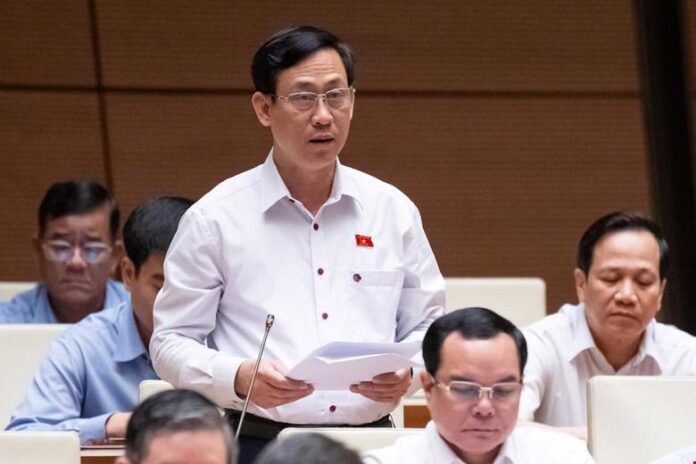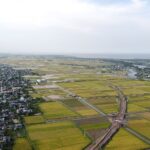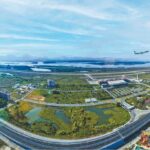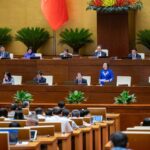On May 16, during discussions on the National Assembly’s draft Resolution on mechanisms and policies to support the private sector, delegates emphasized that the Resolution proposes several breakthrough and superior policies to further improve the business environment and facilitate private enterprises’ access to land, finance, credit, science and technology, innovation, and digital transformation.
BREAKTHROUGH POLICIES TO SUPPORT PRIVATE SECTOR ACCESS TO LAND AND INDUSTRIAL PARKS
One of the biggest challenges faced by businesses in the past has been accessing land and industrial parks for production and operations. To address these issues and improve businesses’ access to land, the draft Resolution proposes several special support policies.
These include support for accessing land and industrial parks in industrial zones, clusters, and technology incubators. Despite having nearly 450 industrial parks with a total area of about 93,000 hectares, small and medium-sized enterprises still find it challenging to access these areas, and the land rental prices remain high compared to their financial capabilities.
To tackle this issue and implement the direction outlined in Resolution No. 68-NQ/TW, which emphasizes decentralization and empowerment of local governments, the draft Resolution introduces policies to support small and medium-sized enterprises, innovative startups, and high-tech businesses in accessing land and industrial parks.
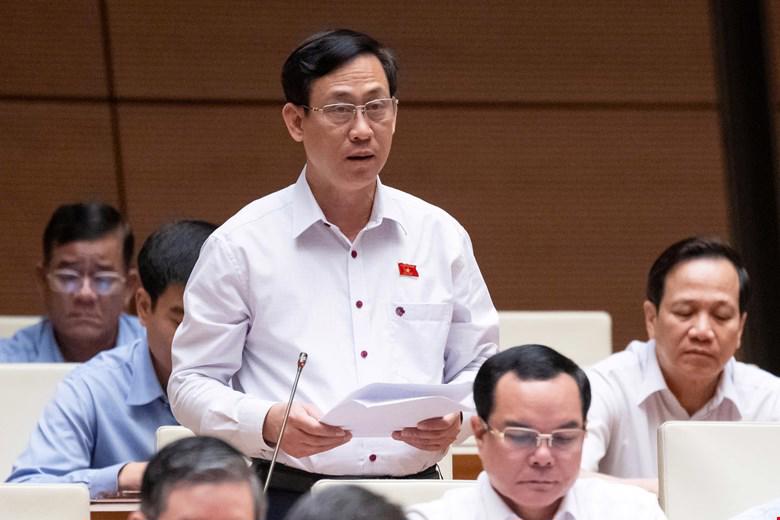
Article 7, Section 2, states: “Infrastructure investors in industrial parks, clusters, and technology incubators who receive support as specified in Section 1 must allocate a portion of the land with developed infrastructure for lease or sublease to high-tech enterprises in the private sector, small and medium-sized enterprises, and innovative startups.”
Delegate Mai Van Hai from Thanh Hoa Province suggested reviewing this regulation to ensure its effectiveness and encourage investment in industrial park, cluster, and incubator infrastructure.
He analyzed that some localities have mechanisms to attract investment in industrial park infrastructure, but attracting secondary investors can be challenging. Requiring infrastructure investors to set aside a portion of the land for lease or sublease to high-tech enterprises in the private sector, small and medium-sized enterprises, and innovative startups could prove difficult.
“Moreover, specifying a portion of the land without considering the demands of private sector enterprises may lead to land wastage if there are no tenants. Who will be held accountable for this, and how will it impact infrastructure investors? These questions could deter potential investors in industrial park and cluster infrastructure,” Mr. Hai pointed out.
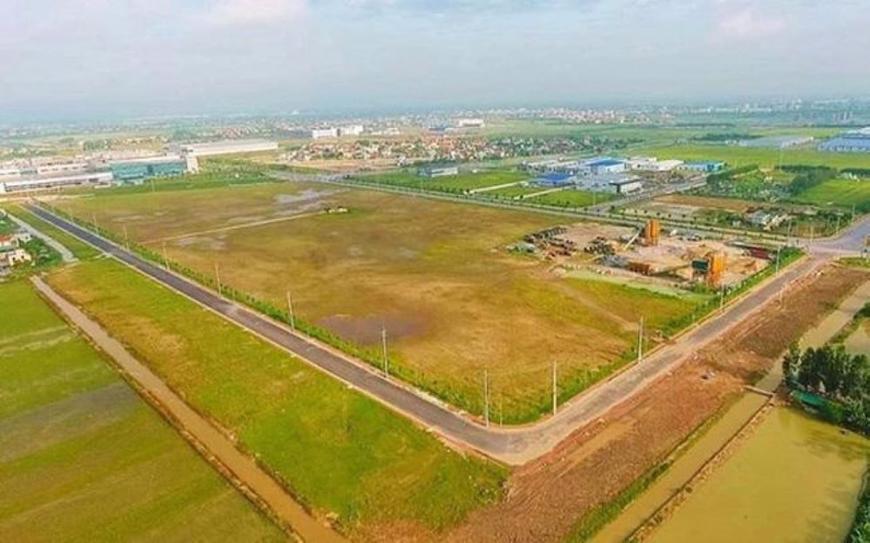
Therefore, the delegate suggested that the Resolution should specify certain provinces and cities with planned industrial parks and clusters. In these areas, the state can support the development of infrastructure and prioritize leasing the land to high-tech enterprises in the private sector, small and medium-sized enterprises, and innovative startups.
Article 7, Sections 4 and 5, stipulate: “For newly established industrial parks and clusters after this Resolution takes effect, the Provincial People’s Committees shall determine the land area for each park or cluster, ensuring a minimum average of 20 hectares per park or cluster or 5% of the total area with developed infrastructure for lease or sublease to high-tech enterprises in the private sector, small and medium-sized enterprises, and innovative startups.”
“If, after two years from the completion of infrastructure construction, there are no tenants, the infrastructure investors are allowed to lease or sublease the land to other enterprises.”
According to Mr. Hai, “This regulation is challenging to implement and may create difficulties, causing us to miss out on attracting other potential secondary investors. Moreover, if there are no private sector enterprises renting the land after two years, the infrastructure investors will incur losses.”
Therefore, the delegate suggested that for industrial park and cluster projects, if there is a demand for land rental from private sector enterprises after this Resolution takes effect, the necessary arrangements should be made to prioritize meeting their needs.
If the demand for land rental from private sector enterprises is uncertain, some provinces and cities can plan industrial parks and clusters, including allocating land to meet their investment needs, considering the socio-economic development trends.
THREE PRINCIPLES FOR SUPPORT POLICIES ON PRIVATE SECTOR ACCESS TO LAND
According to the draft, high-tech enterprises in the private sector, small and medium-sized enterprises, and innovative startups will receive support in the form of a minimum 30% reduction in land rental costs for the first five years from the date of signing the land lease contract with the infrastructure investors in industrial parks, clusters, and technology incubators. The state will reimburse the infrastructure investors for this rental support as per the government’s regulations.
Delegate Nguyen Van Than from Thai Binh Province suggested that if this is a special resolution, it should not specify a minimum of 30% land allocation but rather define it as 50% or 70%…
Providing feedback on supporting access to land and industrial parks, Delegate Le Thu Ha from Lao Cai Province emphasized the need to establish a synchronized and sustainable land use strategy aligned with enterprise support policies.
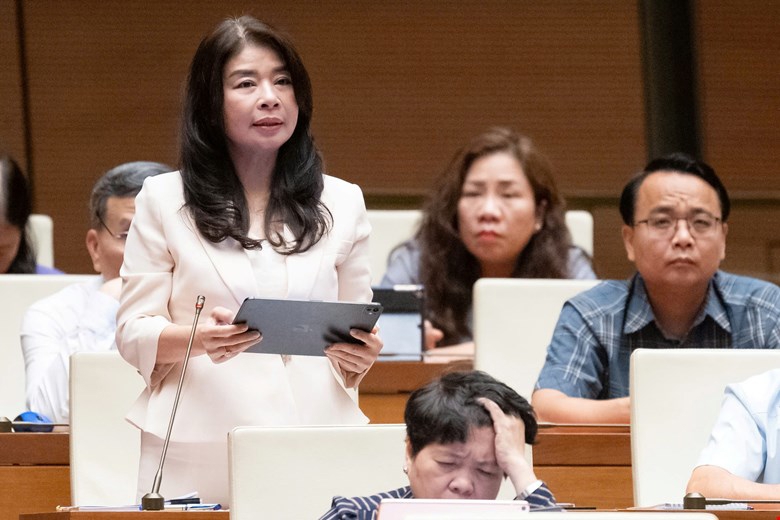
According to the delegate, “We are discussing supporting new, small, flexible, and creative forces that are also vulnerable in an unstable and unpredictable institutional environment. Therefore, land support policies should be based on three core principles.”
First, ensure synchronization with land use planning as per the Land Law to avoid land reservation without utilization or conflict with current planning.
Second, disclose land and production facility information through a national database linked to local digital infrastructure and the business registration system, as required by the amended Land Law.
Third, distinguish between conditional support and special preferences to prevent policy exploitation, especially in land rental price determination and public asset valuation.
“Land support policies should not be viewed merely as a technical measure but as an essential institutional component in effectively and transparently managing public resources,” the delegate emphasized.
While appreciating the draft Resolution’s delegation of authority to the Provincial People’s Committees to determine criteria, lists, and support levels for land and public asset leasing, the delegate expressed concern that without a coordinating mechanism and synchronized digital tools, local decisions could lead to inconsistencies.
“Therefore, it is necessary to establish a shared digital platform to ensure data interconnectivity between sectors such as natural resources and environment, finance, investment, and science and technology, with real-time updates to support policy allocation and monitoring.
Simultaneously, clarify the central role in establishing data standards and legal criteria, especially regarding the concept of innovative enterprises and high-tech enterprises, currently scattered across various specialized laws,” the delegate from Lao Cai proposed.
The delegate emphasized the need to view innovative enterprises as strategic entities, not just support recipients.
She also affirmed that the regulation allowing a minimum 30% reduction in land rental costs for the first five years is a step forward. “While cost reduction is necessary, it is more crucial to create suitable infrastructure for innovative enterprises’ development,” she added.
Highlighting this point, the delegate suggested integrating infrastructure design standards for industrial parks, clusters, and technology incubators to cater to small and innovative enterprises with small areas, flexible spaces, shared amenities, and legal, financial, and technological support.
Additionally, encourage public-private partnership models in developing specialized production facilities for strategic sectors like semiconductors and AI, instead of providing scattered support. Pilot innovation land funds in localities, similar to land funds for education and healthcare, with transparency on digital maps, enabling online access for enterprises without the ‘ask-and-give’ mechanism.
“By recognizing land as the foundation of the production, innovation, and development ecosystem, interconnecting land infrastructure, digital infrastructure, and institutional infrastructure will become a catalyst,” she concluded.
“HP and ADG: A Strategic Partnership for Technology Distribution in Vietnam”
On May 9, 2025, HP Vietnam Technology Limited (HP) announced a strategic partnership with ADG Technology Joint Stock Company (ADG Technology) for the distribution of HP products in the country.
The Transition to a Two-Tier Government: A Landmark in Vietnam’s Legislative History
“According to Minister of Home Affairs Pham Thi Thanh Tra, the government is committed to issuing 25 decrees to ensure the timely implementation of the two-level local administration. This decisive action underscores the government’s dedication to establishing a streamlined and efficient governance structure.”

